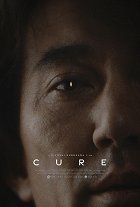Realização:
Kiyoshi KurosawaArgumento:
Kiyoshi KurosawaCâmara:
喜久村徳章Música:
ゲイリー芦屋Elenco:
Kōji Yakusho, Masato Hagiwara, Yukijirō Hotaru, Ren Ōsugi, Tarō Suwa, Makoto Togashi, 田中哲司, 洞口依子, 大鷹明良, Masahiro Toda, Kae Egawa, Kae MinamiSinopses(1)
Set in and around a bleak, decaying Tokyo, a series of murders have been committed by average, ordinary people who claim to have had no control over their horrifying actions. Following the only link a mysterious stranger who had brief contact with each perpetrator/victim/detective Kenichi Takabe (Koji Yakusho) places his own sanity on the line as he tries to end the wave of inexplicable terror. (texto oficial do distribuidor)
(mais)Críticas (3)
A perfect Japanese mysterious thriller with a great atmosphere that builds up slowly, and an interesting story. The premise reminds me a little of one of the very good episodes of The X-Files (Pusher, from the third season). The ending, as in most Asian thrillers, left me flabbergasted – what is that supposed to mean? The Asians really know how to do ambiguous tension. And even though I prefer to know, or at least to guess, where I’m standing with a film, this approach also has something going on for it. Either way, this film is worth recommending, if only for its oppressive atmosphere.
()
Kiyoshi Kurosawa already intrigued me with his film Kairo, which was shot in a similarly depressive spirit. Cure, however, has a better, more interesting story and truly excels in its progression, which becomes darker and darker, weighing increasingly on the viewer until it culminates in a finale that really shakes them. If Japanese films were more accessible in Europe, perhaps we would finally understand that there's no reason to fear them, and instead we would realize why they are worth admiring.
()
The blazing little fish Dory on her way to your head... The oppressive noises, disturbing sounds, and interiors so stark that a prison cell almost looks the same as a detective’s kitchen. Kurosawa keeps the audience at a distance from the cold ellipse of violence and despair, and when he occasionally tries surrealism, he almost loses them. Kojī Yakusho, on the other hand, is drawn into the whirlwind of events and washing machines running empty, doing quite the opposite. Perhaps the waitress didn’t go to cut sushi at the end, did she?
()
Galeria (24)


Publicidade